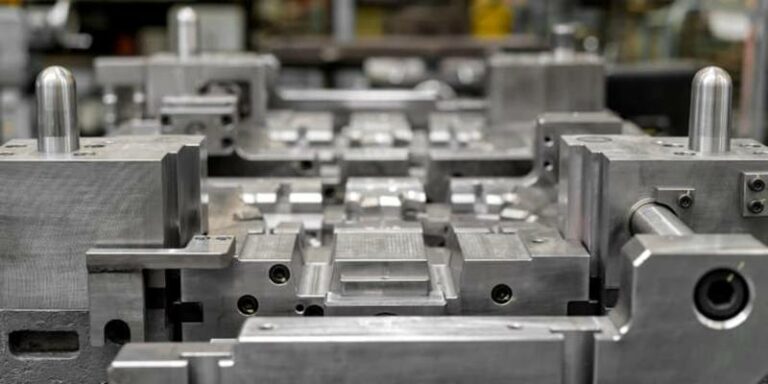The 45-Second Trick For Stahl Specialty Company
The 45-Second Trick For Stahl Specialty Company
Blog Article
The Only Guide for Stahl Specialty Company
Table of ContentsThe Facts About Stahl Specialty Company RevealedStahl Specialty Company Things To Know Before You BuyGet This Report about Stahl Specialty CompanyThe 5-Minute Rule for Stahl Specialty Company5 Simple Techniques For Stahl Specialty Company
Chemical Contrast of Cast Light weight aluminum Alloys Silicon promotes castability by lowering the alloy's melting temperature and boosting fluidity throughout casting. Furthermore, silicon contributes to the alloy's toughness and use resistance, making it valuable in applications where resilience is vital, such as automobile components and engine elements.It likewise enhances the machinability of the alloy, making it less complicated to process into ended up items. In this way, iron adds to the general workability of light weight aluminum alloys.
Manganese adds to the stamina of light weight aluminum alloys and enhances workability. It is commonly used in functioned light weight aluminum products like sheets, extrusions, and profiles. The existence of manganese help in the alloy's formability and resistance to splitting during construction procedures. Magnesium is a light-weight element that offers stamina and effect resistance to light weight aluminum alloys.
It permits the production of lightweight components with outstanding mechanical residential or commercial properties. Zinc enhances the castability of light weight aluminum alloys and aids control the solidification process throughout casting. It improves the alloy's stamina and solidity. It is frequently discovered in applications where intricate shapes and great details are essential, such as attractive spreadings and particular automobile components.
8 Simple Techniques For Stahl Specialty Company
Due to the fact that aluminum-silicon alloys have excellent casting residential or commercial properties, high gas properties, basic processes, and superb deterioration resistance, aluminum-silicon alloys are most typically used in the die-casting industry in the house and abroad. At the same time, aluminum-silicon alloys are also reasonably early and widely identified alloys developed and used in die-casting. After continuous research study and enhancement, most of the current worldwide mainstream aluminum-silicon alloys have been finalized and are absolutely nothing even more than A356, A360, A380, ADC12, B390, and A413.
The key thermal conductivity, tensile stamina, return strength, and elongation vary. Select ideal resources according to the performance of the target item produced. Amongst the above alloys, A356 has the greatest thermal conductivity, and A380 and ADC12 have the most affordable. The tensile restriction is the opposite. A360 has the very best yield stamina and the highest possible elongation rate.

3 Easy Facts About Stahl Specialty Company Shown
In accuracy spreading, 6063 is well-suited for Click Here applications where elaborate geometries and premium surface area coatings are paramount. Instances consist of telecommunication units, where the alloy's superior formability allows for sleek and visually pleasing styles while keeping architectural honesty. In a similar way, in the Illumination Solutions sector, precision-cast 6063 elements develop elegant and efficient lighting fixtures that require complex shapes and good thermal performance.
(https://www.pinterest.com/pin/1108589264525265586)
The A360 exhibits superior elongation, making it suitable for facility and thin-walled elements. In precision casting applications, A360 is well-suited for industries such as Customer Electronics, Telecommunication, and Power Devices.

In precision spreading, light weight aluminum 413 shines in the Consumer Electronics and Power Devices sectors. This alloy's superior rust resistance makes it a superb selection for outside applications, making certain long-lasting, sturdy products in the discussed industries.
The Greatest Guide To Stahl Specialty Company
When you have actually determined that the aluminum die casting process appropriates for your task, an essential following action is selecting one of the most appropriate alloy. The aluminum alloy you pick will substantially influence both the casting process and the residential properties of the final product. As a result of this, you need to make your decision meticulously and take an enlightened method.
Identifying the most suitable aluminum alloy for your application will indicate considering a broad selection of characteristics. These relative alloy qualities adhere to the North American Die Spreading Organization's standards, and we have actually split them into two classifications. Casting Foundry. The very first classification addresses alloy attributes that influence the manufacturing process. The 2nd covers features influencing the residential or commercial properties of the end product.
The alloy you select for die casting directly affects numerous aspects of the spreading process, like just how easy the alloy is to function with and if it is prone to casting issues. Hot cracking, likewise called solidification breaking, is a regular die casting flaw for aluminum alloys that can cause internal or surface-level rips or cracks.
The Basic Principles Of Stahl Specialty Company
Certain aluminum alloys are a lot more vulnerable to warm cracking than others, and your option must consider this. Another usual flaw located in the die casting of aluminum is die soldering, which is when the cast stays with the die walls and makes ejection tough. It can harm both the cast and the die, so you must try to find alloys with high anti-soldering properties.
Deterioration resistance, which is currently a noteworthy quality of aluminum, can vary significantly from alloy to alloy and is an important characteristic to take into consideration depending upon the ecological problems your product will be subjected to. Wear resistance is an additional property frequently looked for in aluminum products and can separate some alloys.
Report this page